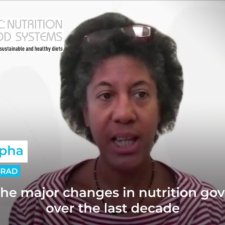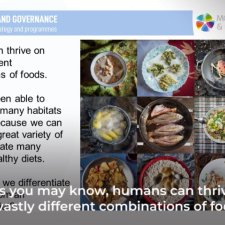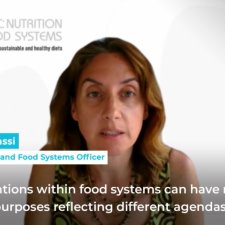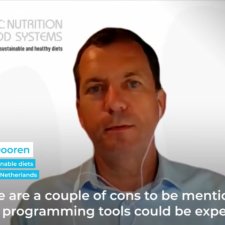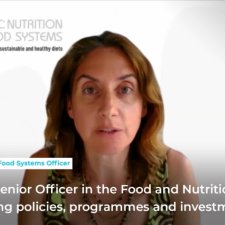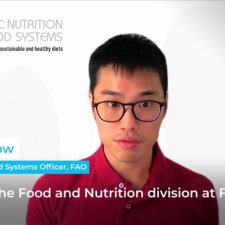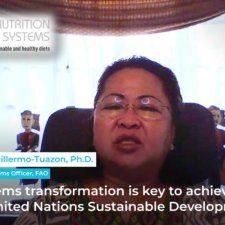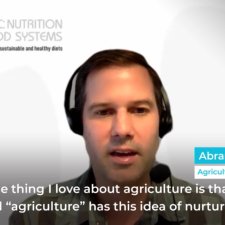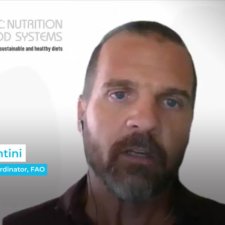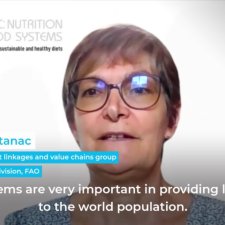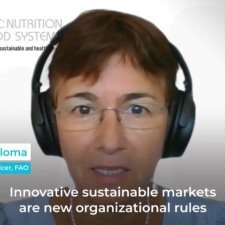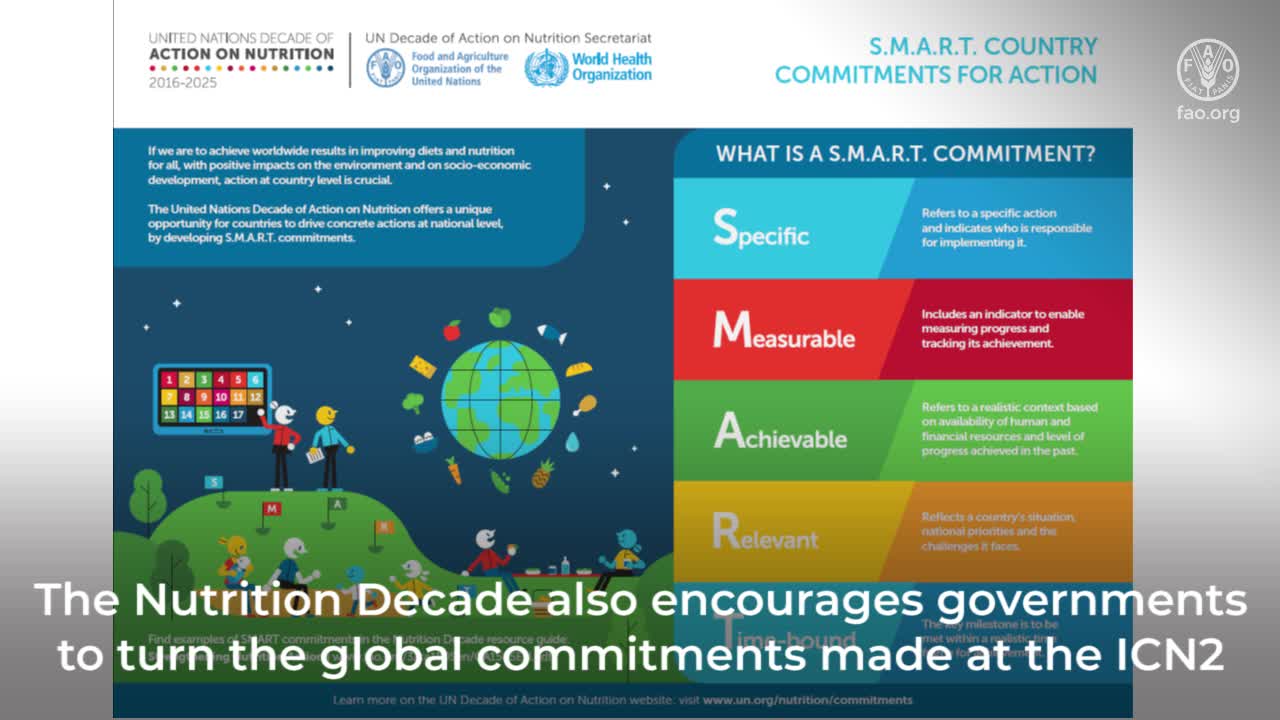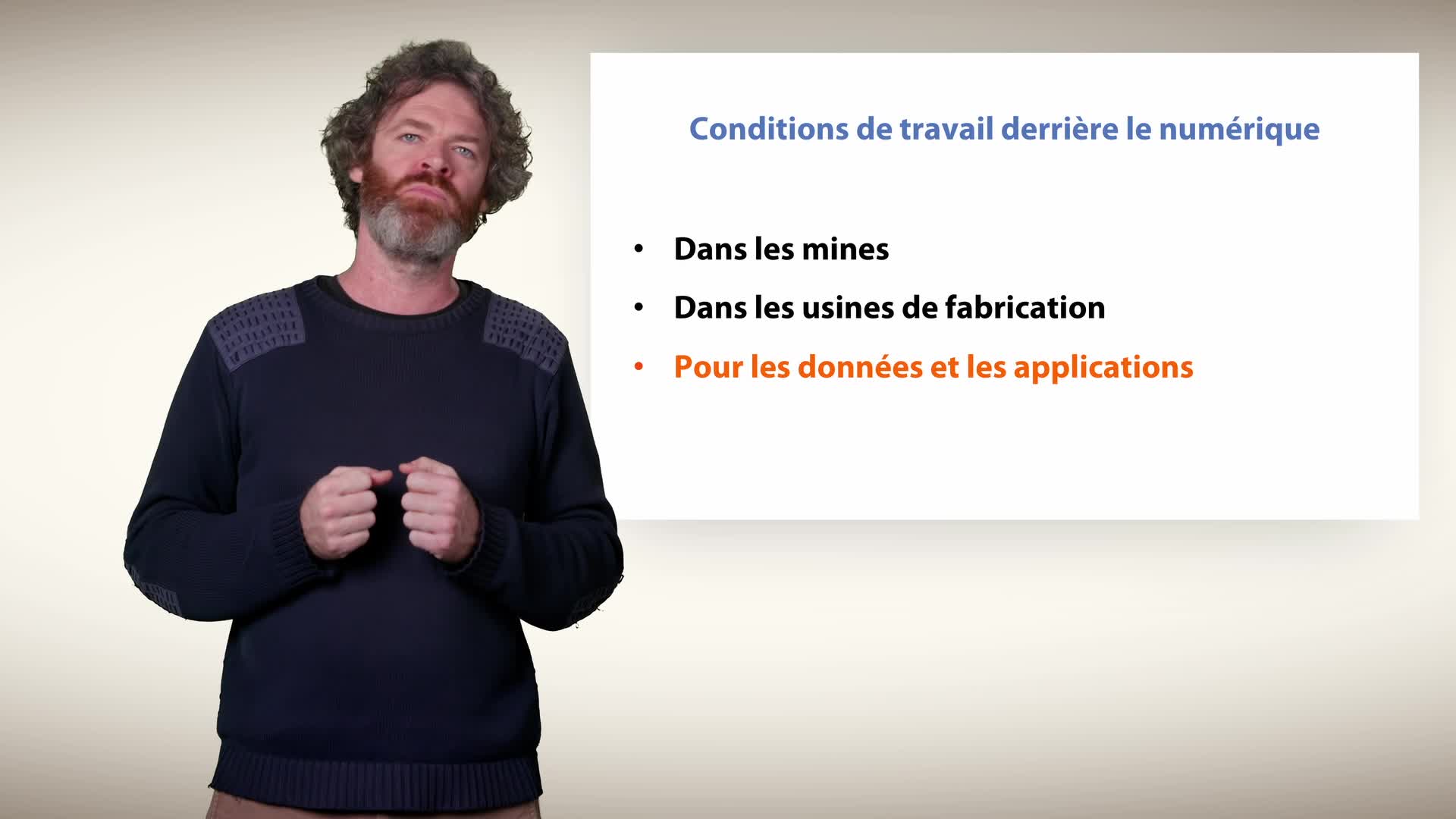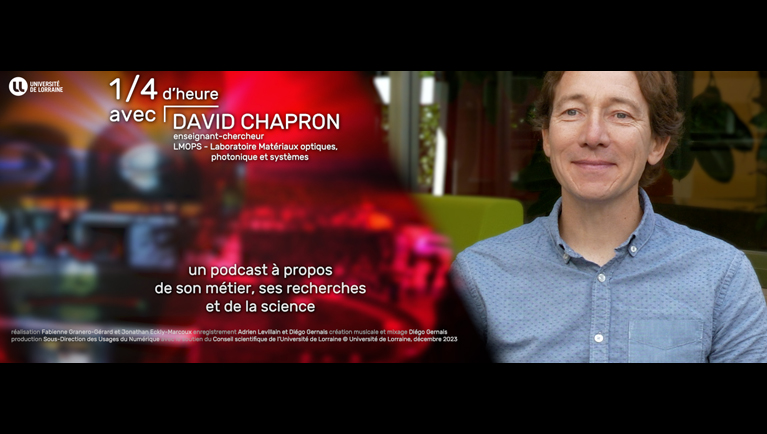Notice
United Nations Decade of Action on Nutrition 2016–2025
- document 1 document 2 document 3
- niveau 1 niveau 2 niveau 3
Descriptif
Trudy Wijnhoven (Nutrition Officer, FAO) gives presentation about the United Nations Decade of Action on Nutrition 2016–2025, also referred to as the Nutrition Decade. It was declared by the United Nations General Assembly in April 2016. It is a commitment by United Nations Member States to undertake 10 years of sustained and coherent implementation of policies, programmes and increased investments to eliminate malnutrition in all its forms, everywhere, leaving no one behind.
The Framework for Action sets forth 60 recommendations to guide the effective implementation of the commitments included in the Rome Declaration on Nutrition. Governments are currently off-track to meet the global nutrition and diet-related NCD targets. The Nutrition Decade highlights the urgency to act and provides a focused period of 10 years to set and achieve impact at country level.
Together, the Second International Conference (ICN2), the 2030 Agenda and the Nutrition Decade have placed nutrition firmly at the heart of the sustainable development agenda with the recognition that transformed food systems have a fundamental role to play in promoting healthy diets and tackling malnutrition in all its forms.
Intervention / Responsable scientifique
Thème
Dans la même collection
-
Lessons for food system policy, programs and governance – A word from the experts
AlphaArlèneBhattacharjeeLalitaInterview with Arlène Alpha (Researcher, CIRAD) and Lalita Bhattacharjee (Senior Nutrition Advisor, FAO Bangladesh) about food system policy, programs and governance.
-
Food-based dietary guidelines (FBDGs) to inform policies and programmes for food system transforma…
Islas RamosAnaAna Islas Ramos (Nutrition Officer, FAO) spoke about the use of FBDGs to inform policies and programmes to transform food systems.
-
Lessons for food system policy, programs and governance
FracassiPatriziaPatrizia Fracassi (Senior Nutrition and Food System Officer, FAO) explains (and gives examples) that interventions within the food systems can have competing priorities that require balancing risks
-
From data to impact – Tools for gathering information and taking decisions. A word from the experts.
Guillermo-TuazonMaria AntoniaVan DoorenCornéInterview with Maria Antonia Guillermo-Tuazon (Nutrition and Food Systems Officer, FAO) and Corné van Dooren (World Wildlife Fund Netherlands).
-
Nutrition-sensitive investment in agriculture and food systems - Budget analysis guidance note
FracassiPatriziaPatrizia Fracassi (Senior Nutrition and Food System Officer, FAO) presents FAO’s work on Budget Analysis for nutrition sensitive investments in agri-food systems.
-
The theory of change in programming for sustainable healthy diets - Understanding the system thinki…
SeowTi KianLorvaoClémentTi Kian Seow (Nutrition and Food Systems Officer, FAO) and Clement Lorvao (Senior Monitoring and Evaluation Expert, FAO) present how to use theories of change and impact pathways to mainstream
-
From data to impact – Tools for gathering information and taking decisions
Guillermo-TuazonMaria AntoniaMaria Antonia Tuazon (Nutrition and Food Systems Officer, FAO) addressed the issue of data collection for planning, monitoring and evaluating the transformation of food systems.
-
Systems approaches to food production and supply – a word from the experts
BickslerAbramPolo GalanteAndreaInterview with Abram Bicksler (Agricultural Officer, FAO) and Andrea Polo Galante, (Senior Nutrition Consultant, FAO) on linkages between healthy diets and food production and the sustainable food
-
The role of urban and periurban agriculture in promoting sustainable food systems
SantiniGuidoGuido Santini (Programme Coordinator, FAO) develops a presentation on the role of urban and periurban agriculture in promoting sustainable food systems in urban areas.
-
Systems approaches to food production and supply
TartanacFlorenceFlorence Tartanac (Senior officer, market linkages and value chains groups, FAO) looks at the definition of food systems and their role in providing a fair livelihood for the world's population.
-
Systems approaches to the food environment - A word from the experts
MattioniDaliaSantacolomaPilarInterview with Dalia Mattioni, Research Associate - FOODTRAILS project - School of Geography and Planning, Cardiff University) and Pilar Santacoloma, Agri-food Systems Officer, FAO, who explain how
-
Systems approaches to the food environment Law on food labelling and advertising: the Chilean exper…
Rodríguez OsiacLorenaDra. Lorena Rodríguez Osiac (Professor, Public Health Institute, University of Chile) presents the experience implemented in Chile on food labelling and advertising.
Avec les mêmes intervenants et intervenantes
-
2016-2025 : la Décennie d'action des Nations Unies pour la nutrition
WijnhovenTrudyTrudy Wijnhoven (spécialiste de la nutrition, FAO) fait une présentation sur la Décennie d'action des Nations unies pour la nutrition 2016-2025, également appelée Décennie de la nutrition.
Sur le même thème
-
Le numérique, impasse pour l'humanité et la planète
LebrunFabienFabien Lebrun, chercheur à Nantes Université, parle dans cette vidéo des impacts sociaux et sanitaires du numérique.
-
Podcast 1/4 d'heure avec : David Chapron, enseignant-chercheur au Laboratoire Matériaux optiques, …
ChapronDavidRencontre avec David Chapron - enseignant-chercheur au LMOPS (Laboratoire Matériaux optiques, photonique et systèmes).
-
-
05. Se plier en quatre (avec Marie Soulhac)
SoulhacMariePoncetRomainAnimation : Romain Poncet, ingénieur de recherche en sociologie.
-
00. Des comptables et des conteurs (Présentation avec Jean-Philippe Pierron)
PierronJean-PhilippeIntroduction à la série de podcasts "Aux Grands Remèdes les Petits Mots".
-
-
01. Le soin du détail (Avec Emilie Chanel)
PoncetRomainChanelEmilieCe podcast est proposé par la Chaire Valeurs du Soin, animé par Romain Poncet, ingénieur de recherche en sociologie.
-
-
-
-
02. Faire de son mieux (Avec Nathalie Vallet-Renart)
Vallet-RenartNathaliePodcast animé par Romain Poncet, ingénieur de recherche en sociologie.
-
03. Soignants ou Soi-Niant (Avec Sonia Benkhelifa)
BenkhelifaSoniaAnimation : Romain Poncet, ingénieur de recherche en sociologie.


